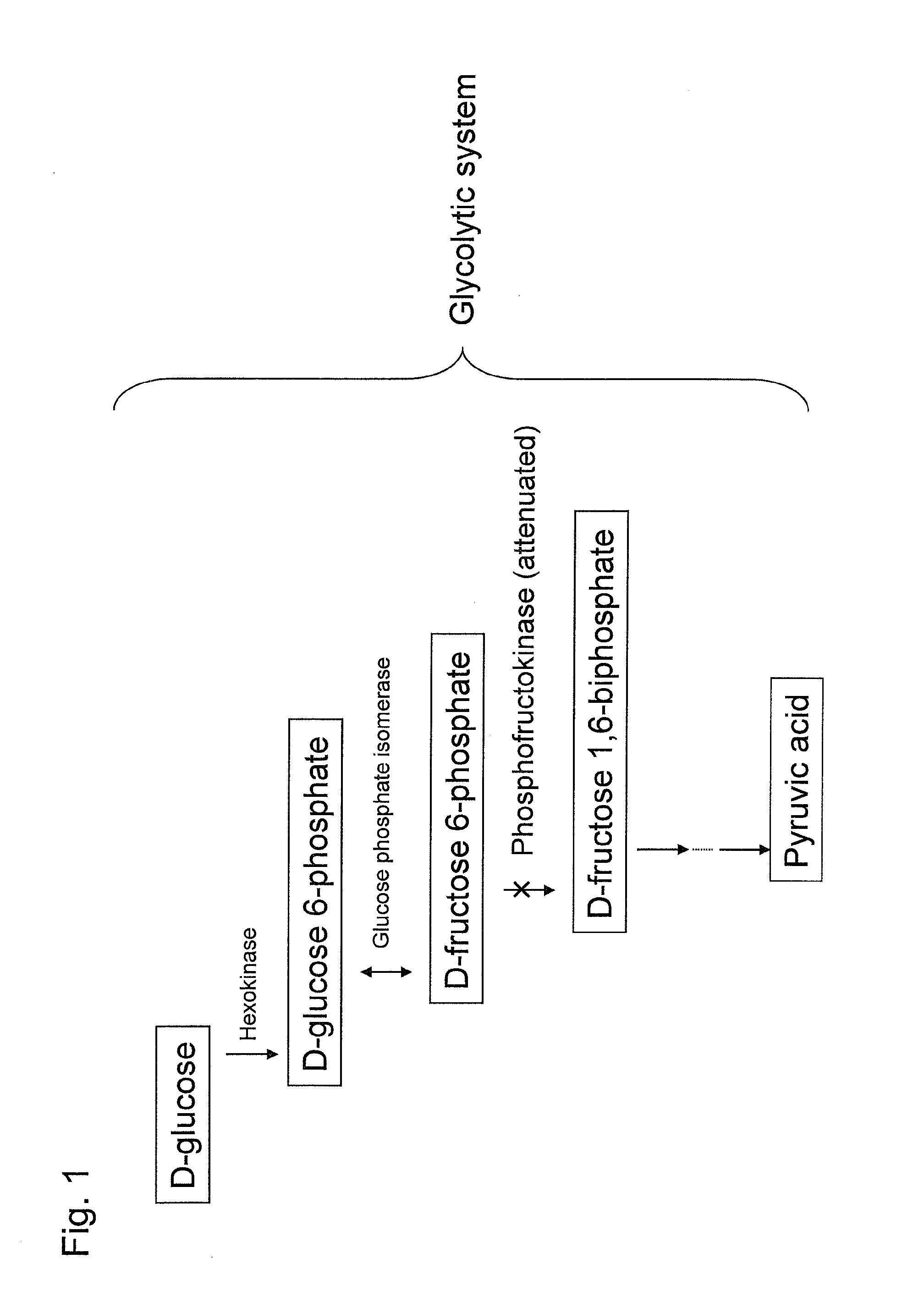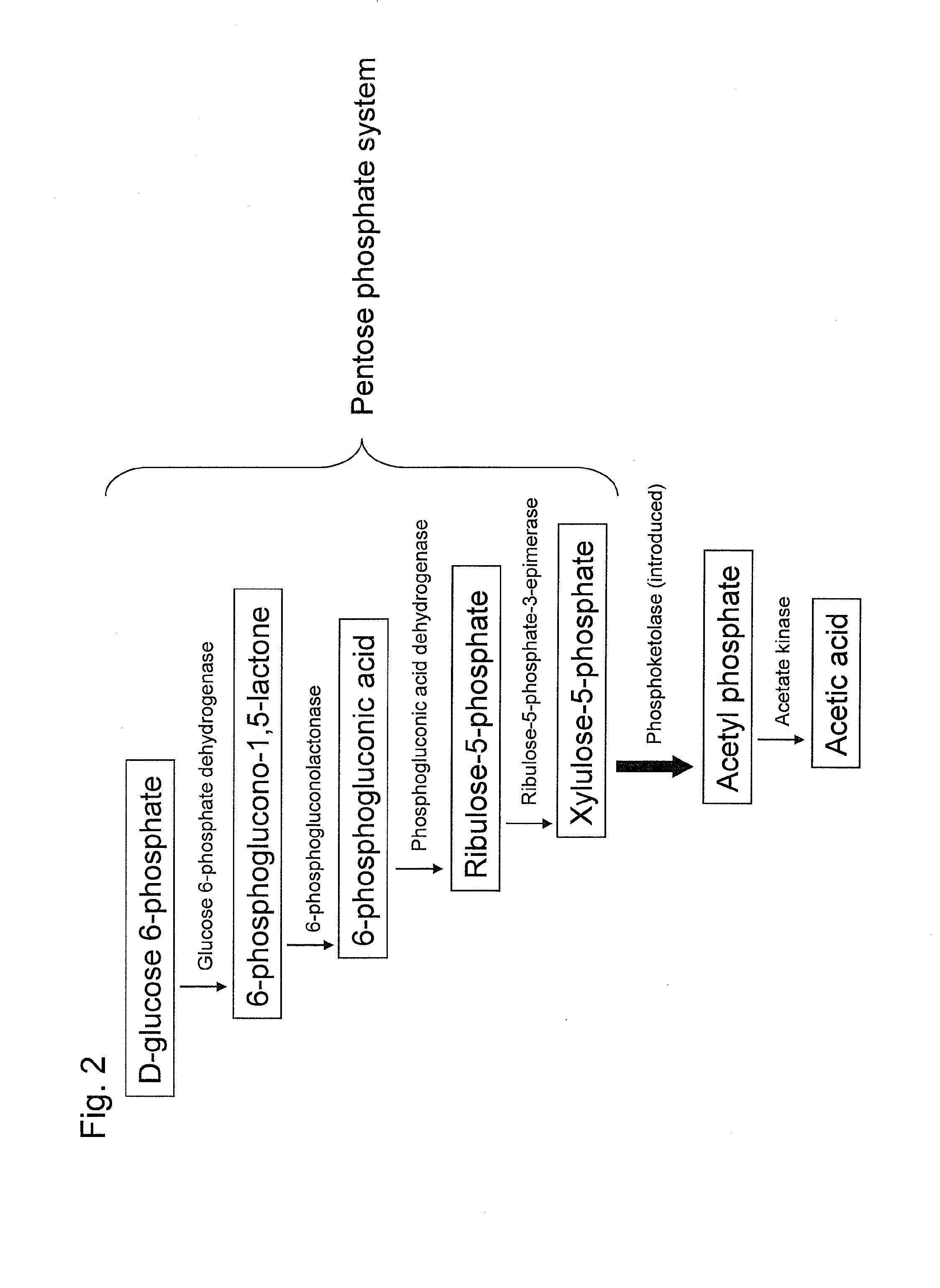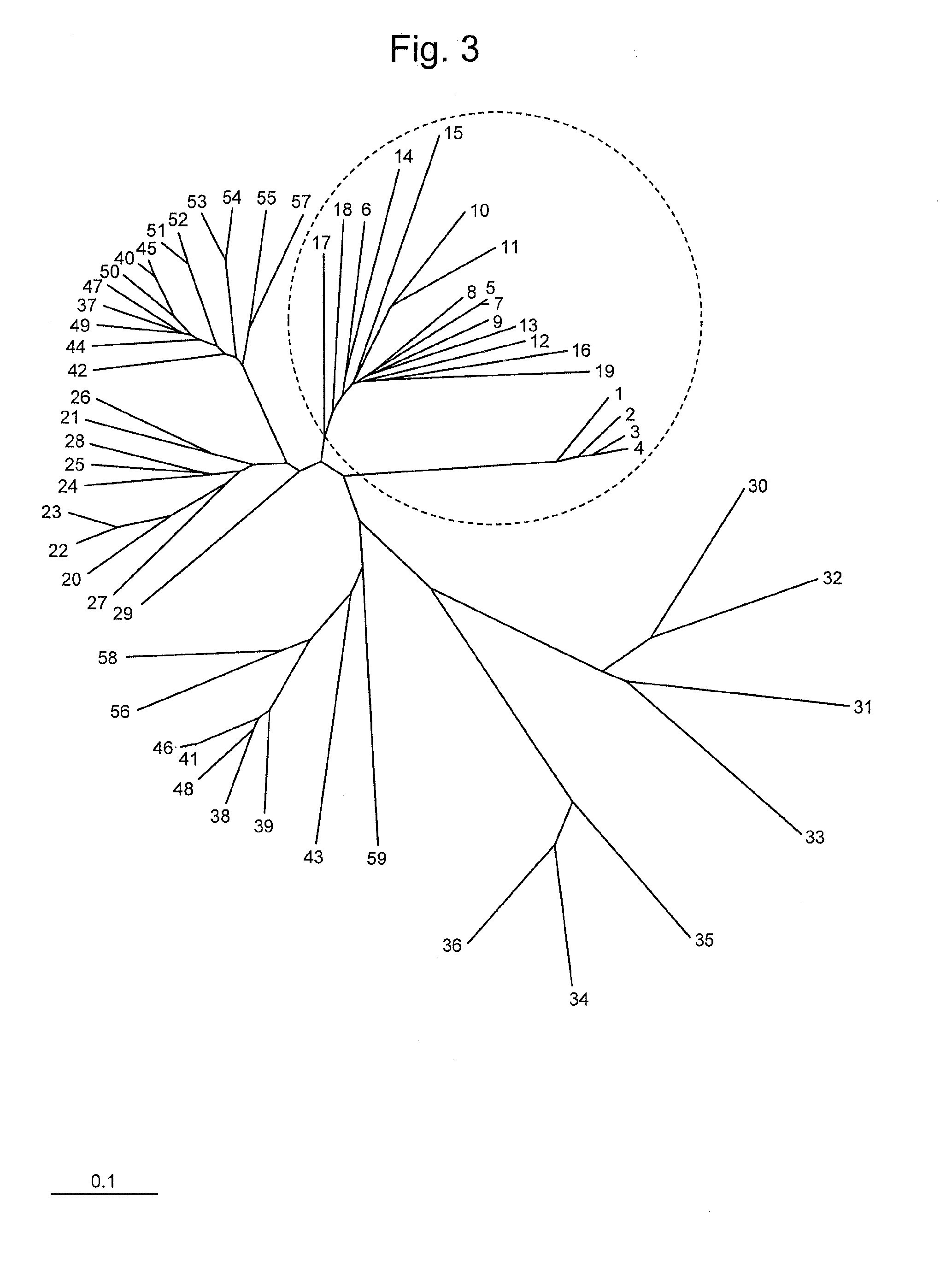Recombinant yeast and substance production method using the same
a technology of recombinant yeast and substance, applied in the direction of lyase, transferase, bulk chemical production, etc., can solve the problems of significant low productivity, difficult to increase the amount of acetyl-coa within cells, and difficulty in reducing the productivity of acetic acid or a substance made from acetyl-coa, so as to reduce the activity of converting fructose-6-phosphate and improve the productivity of acetic acid or substan
- Summary
- Abstract
- Description
- Claims
- Application Information
AI Technical Summary
Benefits of technology
Problems solved by technology
Method used
Image
Examples
examples
[0068]The present invention is hereafter described in greater detail with reference to the following examples, although the technical scope of the present invention is not limited thereto.
[0069]In these examples, recombinant yeast was prepared by attenuating the endogenous phosphofructokinase gene of wild-type yeast or isopropanol-producing yeast and introducing a phosphoketolase gene into the yeast. Recombinant yeast was further prepared by introducing or enhancing other genes in addition to the aforementioned gene attenuation and gene introduction. These strains were then examined for acetic acid productivity, ethyl acetate productivity, and isopropanol productivity.
[Materials and Methods]
Hosts
[0070]ECOS Competent E. coli JM109 (Nippon Gene Co., Ltd.), S. cerevisiae YPH499 (Stratagene) as wild-type yeast, and a #15-10 strain (disclosed in the reference example described later) as isopropanol-producing yeast were used.
[0071]
[0072]PCR was performed under the following conditi...
PUM
| Property | Measurement | Unit |
|---|---|---|
| Molar density | aaaaa | aaaaa |
| Molar density | aaaaa | aaaaa |
| Length | aaaaa | aaaaa |
Abstract
Description
Claims
Application Information
 Login to View More
Login to View More - R&D
- Intellectual Property
- Life Sciences
- Materials
- Tech Scout
- Unparalleled Data Quality
- Higher Quality Content
- 60% Fewer Hallucinations
Browse by: Latest US Patents, China's latest patents, Technical Efficacy Thesaurus, Application Domain, Technology Topic, Popular Technical Reports.
© 2025 PatSnap. All rights reserved.Legal|Privacy policy|Modern Slavery Act Transparency Statement|Sitemap|About US| Contact US: help@patsnap.com



